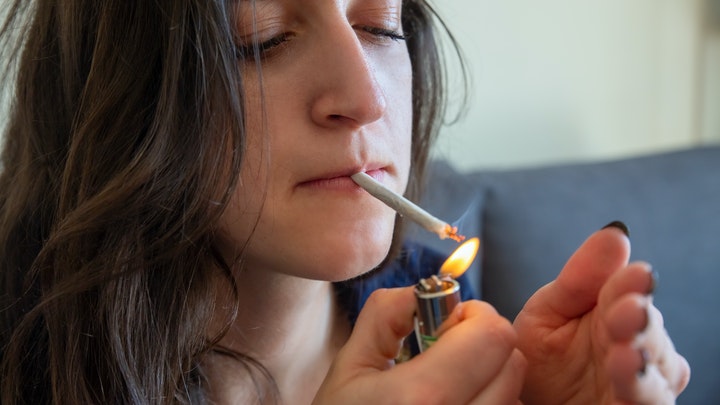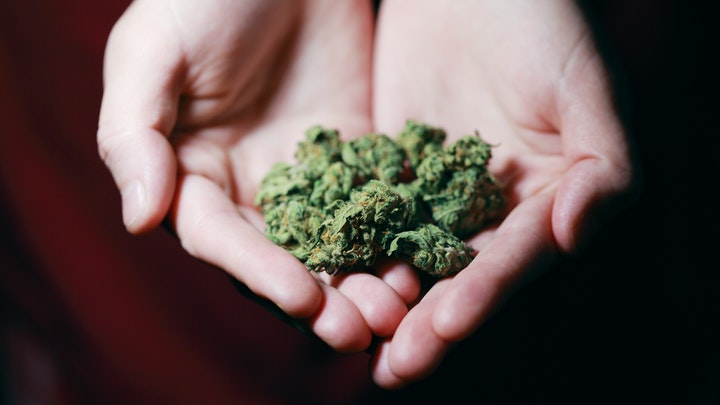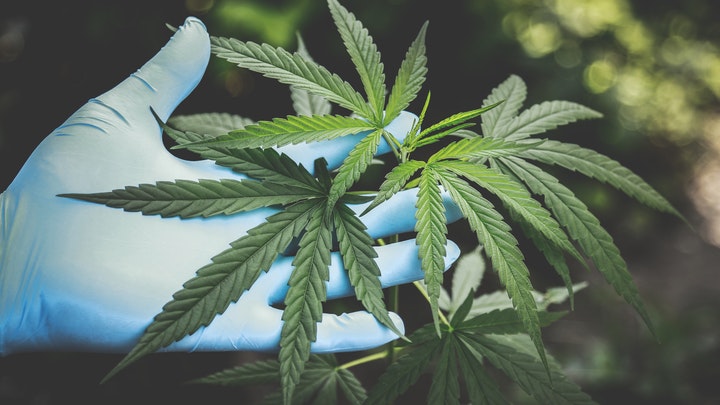Saying no can be really hard. If you are being offered something you don’t want by someone, whether it’s an alcoholic drink or some food, it can feel awkward and impolite to say no.
If you are a young person and you are being offered something by a group of friends, as well as feeling awkward and impolite, you might also feel embarrassed, and like you need to fit in.
Unfortunately, some people don’t take no for an answer the first time and will try to pressure you to take something even if you don’t want to.
This pressure can lead you to feel stressed, and anxious, and you might find yourself caving in, even if you don’t want to, just to stop the conversation.
All of these situations also apply to cannabis. It is, therefore, really useful to know some good, effective ways in which you can say no to cannabis without having to worry about it.

Firstly, what is cannabis? Well, cannabis is a drug made from the leaves of a plant called cannabis Sativa. The drug contains lots of chemical compounds, the most important of which are THC and CBD, and these are both cannabinoids.
THC is the primary psychoactive component in cannabis, and once it enters the bloodstream it attaches to receptors in the brain, changing your perception of the present.
CBD is known for its relaxant properties and is now used across the world for its purported ability to induce a state of calm and reduce feelings of panic and anxiety.
Some people know cannabis by different names, and this can contribute to a misunderstanding about what exactly is and isn’t cannabis. The different names are typically used by people of different ages and different areas.
For example, in Mexico, the drug is mostly known by the name marijuana, while in the USA people tend to call it the drug pot. Here in the UK, cannabis is now most commonly called weed.
Cannabis has to be ingested to be used, but this can be done in a variety of ways. Typically, the drug is smoked in a pipe, a bong, or a cigarette.
This is one of the quickest ways that the drug can enter the bloodstream, and therefore take effect on the brain.
Another way that the drug is ingested is by edible consumption, where it is baked into food like cake or brownies, however, this takes longer to metabolise and longer to take effect on the brain.

People typically use cannabis for the high that comes from the drug. The feeling of a cannabis high is vaguely similar to the feeling of being drunk.
A cannabis high can come with the sensation of lightheadedness and giddiness, as well as a greater appreciation of stimuli like light and sound. It can also make people more open, and more talkative. It can make people say or do silly things, and make even ordinary things seem funny.
Depending on the amount of cannabis taken, and the concentration level of the THC in the drug, the high can last for several hours. Eventually, the drug will be complexly gone from your body within around 48 hours.

Young people do use cannabis, often in social situations like parties and festivals.
Increasingly, it is a common alternative to alcohol, with some feeling preferring the sensation and some people reporting that they don’t feel any kind of hangover from cannabis like they would with alcohol.
This means that around one-third of 17-year-olds report that they have taken the drug at least once, with a significant proportion of that number using the drug semi-regularly or regularly.
Cannabis is also increasingly easy to access, which is also impacting the number of young people who are able to buy and use the drug. Over £2 billion worth of the drug is sold in one year alone across the UK, which is the equivalent of over 200 tonnes.

Because of the prevalence of cannabis, and the comparisons to alcohol, many people who use the drug – and even those who don’t – believe it to be more or less harmless.
Unfortunately, this isn’t the case.
Cannabis is actually linked with reduced development of parts of the brain when taken during adolescence and teenage years. In particular, the drug stunts the development of the hippocampus, and the prefrontal cortex.
These brain areas are responsible for logical decision-making and memory, which are both important cognitive functions.
The impact on the prefrontal cortex means that you could be liable to make decisions based more on emotion and instinct than fact and logic, which is linked with risky and erratic behaviour.
Equally, the hampered development of the hippocampus has negative consequences on your ability to process, store, and retain long-term memories.
The impact of the drug doesn’t stop there.
In fact, cannabis use is sadly associated with the development of some serious mental health conditions. Both psychosis and schizophrenia can be triggered by the use of cannabis if you have a genetic vulnerability to the mental health conditions as a result of your family’s medical history.
Aside from those conditions, cannabis use is believed to be linked to depression, and an increase in suicidal thoughts. The research on this area is still ambiguous, but there is enough evidence to be sure that there is a link between the two.
Even with the link to depression remaining ambiguous, there is plenty of evidence that shows the use of cannabis has a destabilising impact on mood and behaviour, and it can contribute to a loss of motivation and lack of interest in hobbies and social activities.
This can lead to social isolation, loneliness, and increased dropout rates from academia.
The drug can also be addictive for a minority of users, and around one in ten people who use the drug end up becoming addicted. This number is even higher among people who begin their use of the drug during their adolescence and teenage years or even earlier.
Finally, cannabis is an illicit drug, and this means that lots of activity around the drug is criminal. It also is known to act as a gateway drug to other, ‘harder’ drugs like cocaine, heroin, and MDMA.
These drugs carry much harsher criminal penalties than cannabis, and their use is much more dangerous. Overdosing on heroin, for example, can be fatal.
All these factors, including the fact that the long-term effects of the drug aren’t clear, mean that it is a good idea to say no to cannabis if you’re offered it.

So, now you know that it’s the right thing to do to say no to cannabis. But that doesn’t make it any easier.
Especially with the influence of peer pressure, saying no can be hard, awkward, and embarrassing.
So, here is a list of useful ways to say no to cannabis that help you out of a sticky situation:
The first step you should take is: to make sure you’re being unequivocal and absolutely clear.
Just say, outright, “No thank you.” This leaves no room for interpretation, unlike if you said “I don’t think I want to”, or “not right now.”
People should respect your clarity and your decision. But that doesn’t always happen, unfortunately, so be prepared for a follow-up.
If the pressure continues, or if you are asked again, give a reason. It doesn’t necessarily have to be true, but it can be useful if it is.
A really good reason for not wanting to take cannabis is saying “I’m driving home”.
It’s very clear that driving with any sort of impairment is dangerous for you and everyone else on the road. This should shut down any further questions.
If “I’m driving” doesn’t work for you (you might not even have a car, after all!) you could try a different approach.
Say that you’ve already tried cannabis, and in fact, it made you feel dodgy.
Say it made you very nauseous and sick, and that you clearly don’t react well to it.
Alternatively, you could so that you have tried the drug before but that now you’ve quit.
The reason why you want to say you’ve quit is up to you. Maybe you could say you read up on it and didn’t like what you saw.
Regardless, saying outright that you’ve quit and don’t want to get back into it should be a respectable position.
This one is good to use if you have some responsibilities that you need to attend to later on, or during the next day.
Maybe you’ve got an exam or a sports event. Whatever the reason, wanting to keep a clear head is a good reason not to take cannabis.
If the pressure is still persistent, your best bet might be to change the subject.
Turning the attention to something else nearby, or another topic of conversation can be difficult at the moment, and it might look like you’re trying to change the subject.
But, you could wait for a pause before saying “Anyway, I’ve been meaning to ask…” and then ask a question of someone else.
This should give you the chance to talk about something else, giving you some needed breathing space.
Finally, be proactive. Think about what kind of social situation you’re getting yourself involved in, and with what kind of people.
If you anticipate that you might come under pressure to do cannabis – or even other drugs – while you’re there, make an excuse and don’t go.
Reconsider what kind of friendships you value, and what kind of social situations you want to get involved in.
[1] Cannabis and depression
https://pubmed.ncbi.nlm.nih.gov/33332004/
[2] Effects of cannabis on the adolescent brain